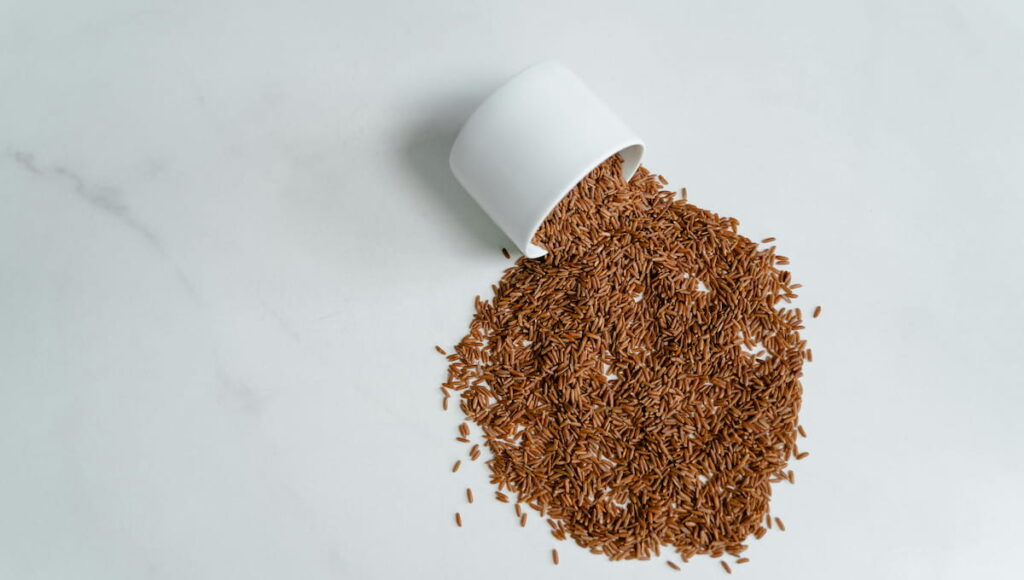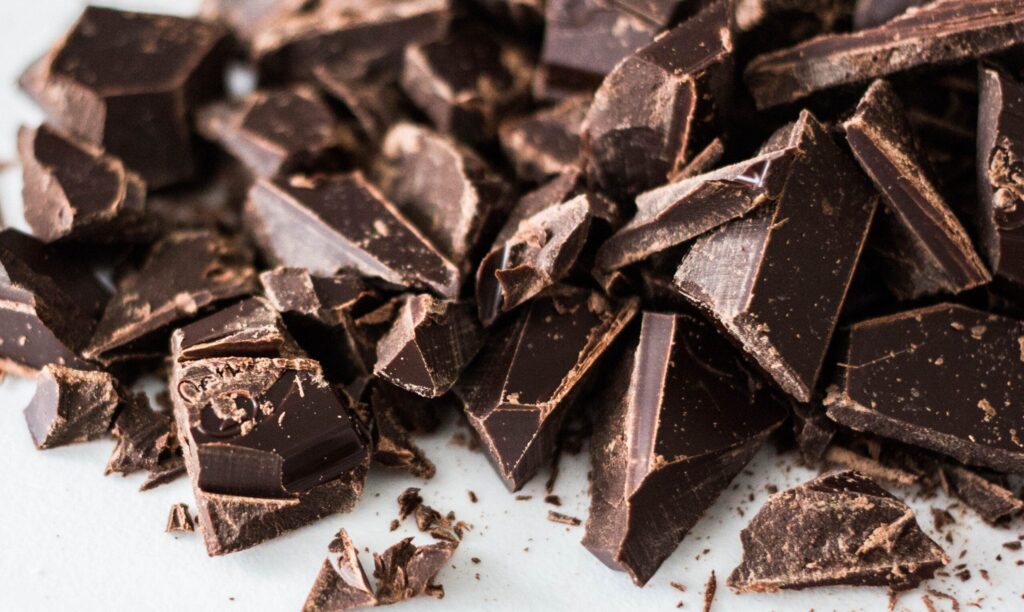Heart Healthy Diets: Foods That Love Your Hearth | BOXROX – BOXROX
Eating a heart-healthy diet significantly minimizes the risk of cardiovascular diseases. Packing your diet with heart-friendly ingredients, from legumes, nuts, and seeds to olive oil and green tea, is super simple. Scroll down for the ultimate list of foods that love your heart!
Leafy Greens

Leafy greens are particularly beneficial for heart health due to their high content of vital nutrients, vitamins, and antioxidants. Spinach, kale, and collard greens are amazing ingredients for lowering cholesterol. They actually lower LDL (bad) cholesterol by binding molecules in the digestive system and removing them from the body.

This process blocks cholesterol from entering the bloodstream, thereby reducing the risk of artery blockage. Greens (especially kale and spinach) are packed with vitamins C and E, fantastic antioxidants that reduce oxidative stress and inflammation, factors that contribute to heart disease.
Moreover, they are high in nitrates, which the body later converts into nitric oxide. Nitric oxide, in fact, has an influence on blood vessels, helping them to relax, improving blood vessels, and lowering blood pressure. Arugula and beet greens have the highest nitrate content.

Leafy greens are superb sources of potassium, a mineral that balances sodium levels in the body. Sodium increases blood pressure by retaining excess fluid. Potassium counteracts this effect, reducing tension in blood vessel walls and lowering blood pressure. Spinach and Swiss chard are outstanding sources of this mineral.

Read Also: 8 Mistakes Everyone Does Trying to Get Shredded
The next nutrient is folate (vitamin B9), chief for reducing homocysteine levels – an amino acid linked to a magnified risk of heart issues when present in high amounts. It can destroy the lining of the arteries and promote blood clots, so to keep its levels in check – pack your diet with spinach and Romaine lettuce.

Magnesium, abundant in leafy greens, helps regulate heart rhythm and blood pressure, backing up overall cardiovascular function. Adequate magnesium intake prevents arrhythmias (irregular heartbeats) and manages blood pressure. Go for Swiss chard and spinach, as they are the best sources!

As you can see, they are nutrient-dense foods but low in calories and fat. This makes them a magnificent choice for maintaining a healthy weight, which is important for heart well-being.
Whole Grains
Whole grains have a lavish nutrient profile that is extremely beneficial for heart health. They are loaded with dietary fibre, particularly soluble fibre, which lowers LDL (bad) cholesterol levels. Fibre ties up to cholesterol in the digestive tract the same way as leafy greens and removes them from the body, preventing them from being absorbed into the bloodstream.

Oats, barley, and brown rice are the top three grains packed with soluble fiber. Whole grains are also fantastic sources of essential nutrients such as vitamins (especially B vitamins like folate, niacin, and thiamine), minerals (iron, magnesium, and selenium), and antioxidants.
Quinoa, whole wheat, and bulgur are the richest sources of these nutrients, which support overall cardiovascular health. They maintain healthy blood pressure, reduce inflammation, and improve blood vessel function.
When you compare them with refined grains, you will see they have a much lower glycemic index. This means they cause a slower, more gradual increase in blood sugar levels. Stable blood sugar levels prevent insulin resistance, a triggering factor for diabetes and heart disease.
Whole grains, chia, and flaxseeds in the first row contain healthy fats that reduce LDL cholesterol. They help to reduce inflammations – a key factor in heart disease. These grains are also rich in antioxidants, particularly vitamin E, selenium, and phytochemicals that protect cells from oxidative stress and inflammation.
This lowers the risk of developing atherosclerosis – hardening and narrowing of the arteries. Include quinoa, brown rice, whole-grain bread, amaranth, rye, seeds, and other whole grains in your diet.
Related: 5 High Fiber Foods and Why they Are Essential for Your Body and Health
Berries

Berries are super-power fruits that are rich in vitamins, minerals, fiber, and plant compounds and are beneficial for heart health. Antioxidants—anthocyanins, flavonoids, and polyphenols—neutralize free radicals, reducing oxidative stress and inflammation. This protects the organism from heart disease and shields the blood vessels.
Blueberries, strawberries, and blackberries are the richest berries in these antioxidants. Chronic inflammation is a key contributor to heart issues, so anti-inflammatory compounds found in berries (raspberries and cranberries especially) reduce those infections in the body, thereby lowering the risk of heart disease.
These fruits are loaded with dietary fiber, too, positively influencing cholesterol levels, blood sugar, and gut – all of them important for heart health. Potassium and magnesium in berries regulate blood pressure – potassium lowers sodium levels in the body, while magnesium relaxes blood vessels.
Related: The Right Macro Ratios You Need for Achieving Fat Loss Faster
Pectin, a sort of soluble fiber, and polyphenols from berries (mostly strawberries and blueberries) reduce LDL and boost HDL cholesterol levels, contributing to a healthier lipid profile. Besides, they improve endothelial function, enhancing the dilatation of blood vessels and improving overall cardiovascular health. The endothelium is the fine layer of cells lining the blood vessels, and its dysfunction is a precursor to atherosclerosis and heart disease.
It is a well-known fact that berries have a low glycemic index and low calories, so they contribute to weight management and blood sugar control, both of which can trigger heart problems.
Avocado
Avocados have a unique nutrient profile and various health-promoting properties. They are superabundant in monosaturated fats (15 grams per avocado), especially oleic acid. These healthy fats boost levels of good cholesterol and decrease levels of bad.

Lower LDL cholesterol actually reduces the risk of plaque buildup in arteries that provoke heart diseases and stroke. The fruit alone is cholesterol-free and naturally low in saturated fat, so replacing regular oil with avocado improves heart health. Avocado oil is a superb option to incorporate into your diet.
Avocadoes also contain a generous amount of potassium. This mineral is the key to maintaining healthy blood pressure levels, as it removes tension from blood vessel walls. One medium avocado provides 15% of the recommended daily dose of potassium.
An avocado possesses about 10 grams of fiber, both soluble and insoluble, making it a fine source of dietary fibre. Dietary fibre is known to lower cholesterol levels and inhibit the risk of heart disease. Avocados’ antioxidants—vitamin E, lutein, and zeaxanthin—shield cells from oxidative stress and inflammation, the key contributors to heart disease.
Regular consumption of avocados grants a healthier lipid profile, as they contain plant sterols (especially beta-sitosterol). Sterols nourish healthy cholesterol levels by blocking its absorption in the intestines. Lastly, eating avocados regularly will lead to favorable changes in blood lipid profiles—reductions in total cholesterol, LDL cholesterol, and triglycerides.
The 3 Most Important Secrets to Sustainable Weight Loss
Fatty Fish
Fatty fish is the first ingredient your doctor will recommend when you come in with any heart issue. It is a fount of omega-3 fatty acids and other important nutrients for cardiovascular health. Salmon, mackerel, tuna, and sardunes are species richest in omegas, particularly EPA (eicosapentaenoic acid) and DHA (docosahexaenoic acid).
They are famous for their anti-inflammatory perks, which reduce chronic inflammation – the main triggering factor for heart disease. They decrease triglyceride levels, preventing arrhythmias (irregular heartbeats) and atherosclerotic plaque growth.

Individuals with hypertension should eat fatty fish regularly because omega-3s relax blood vessels, leading to lower blood pressure. Similar to avocados, these fatty acids increase HDL and decrease LDL cholesterol levels, directly improving overall lipid profile.
Of course, fatty fish acts anti-inflammatory, as it reduces markers of inflamations -C-reactive protein (CRP). Omega-3s also stop blood platelets from clumping together, directily preventing blood clots from forming. This process is important for preventing heart attacks and strokes.
Fatty fish are a fine fount of vitamin D, as well. This vitamin is essential for cardiovascular vigor, and its deficiency multiplies the risk of heart disease.
Dark Chocolate
Surprisingly or not, dark chocolate can be amazing for heart health if you consume it in moderation, primarily due to its rich content of flavonoids, antioxidants, and other heart-friendly compounds.
Flavonoids, particularly flavanols, improve blood flow, reduce blood pressure, and enhance overall vascular health. Flavanols produce nitric oxide in the body, responsible for relaxation and dilatation of blood vessels, resulting in improved circulation. Dark chocolates with 70% cocoa content and more ensure a higher flavonoid concentration.

Chocolate is packed with antioxidants that neutralize free radicals, reducing oxidative stress and inflammation. Its antioxidant capacity is comparable to that of fruits like blueberries and acai berries. Flavonoids also improve lipid profiles by reducing LDL and raising HDL cholesterol levels.
Regular consumption of chocolate lowers blood pressure in people with hypertension. A small amount of dark chocolate lead to a modest reduction in blood pressure. Also, it decreases inflammatory markers like CRP, which is good because chronic inflammations damage vessel walls.
Flavanols from dark chocolate improve endothelial function, as well, which regulates blood flow and pressure. Compounds in the chocolate reduce the tendency of blood to clot, and that prevents heart attacks and strokes.
Of course, you can’t eat any chocolate – go for 70%, 85%, and even 90% cocoa content as it means more flavonoids, antioxidants, and lower sugar content. It will be more bitter, but healthier, too. Choose chocolate with minimal added sugar, as excess negates all its health benefits.
Good options are Lindt Excellence, 70% or 85% cocoa; Ghirardelli Intense Dark, 72% or 86% cocoa; Alter Eco Deep Dark Blackout, 85%; and Thep Pure Dark Chocolate, 70% or 85% cocoa.
Read Also: How to Make the Biggest Visual Change To Your Body Quickly




